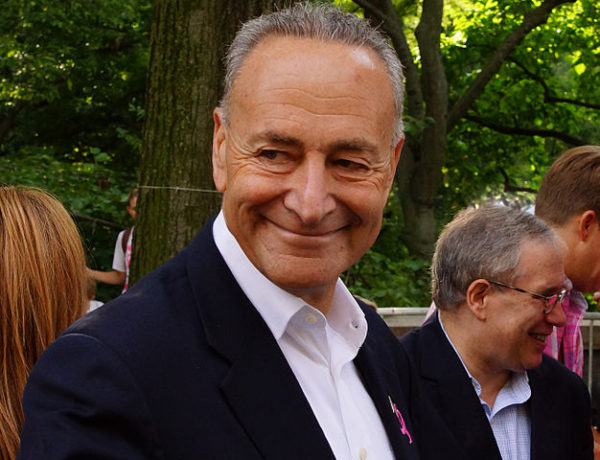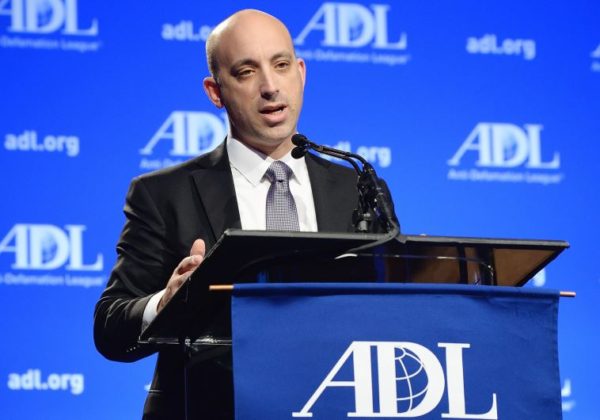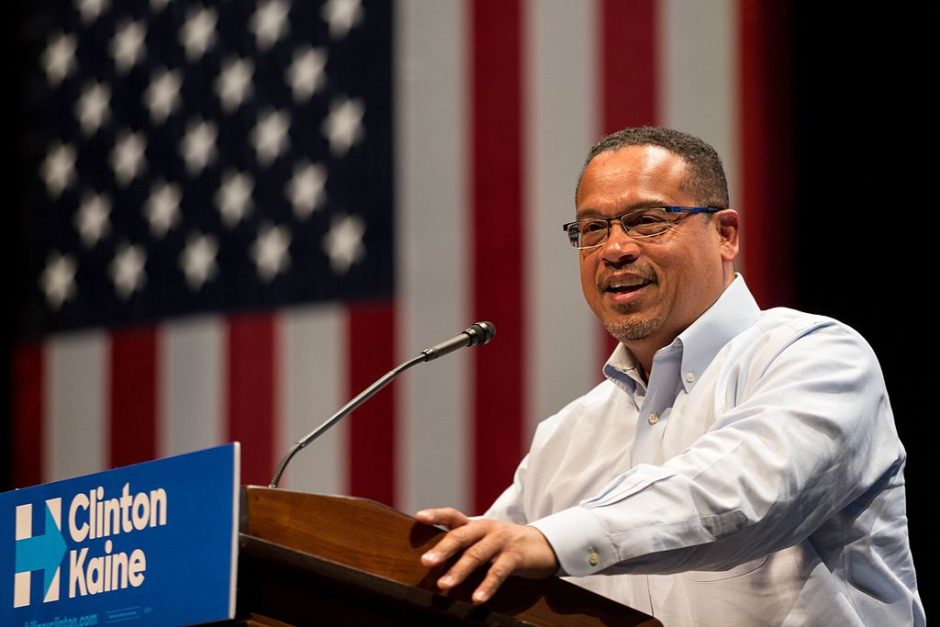A battle royale has erupted in the United States over the selection of the next chairperson of the Democratic Party’s governing body, the Democratic National Committee.
Ever since Florida congresswoman Debbie Wasserman Schultz vacated the post last July, on the eve of the party’s national convention, several Democrats have announced their interest in running for the position, which will be filled next February.
Keith Ellison, an African American congressman from Minnesota and the first Muslim elected to Congress, is one of the candidates.

His candidacy has set off a firestorm of controversy due to his former association with the Nation of Islam, which is deemed to be antisemitic, and his critical approach toward Israel and the United States’ alliance with the Jewish state.
The increasingly sharp debate over Ellison’s suitability, which generally pits liberals against conservatives, has spilled into the public arena.
Ellison is supported by three major figures in the U.S. Senate: Bernie Sanders (Vermont), who lost the party’s presidential nomination to Hillary Clinton last summer; Charles Schumer (New York), who’s due to become the Senate’s first Jewish minority leader, and Elizabeth Warren (Massachusetts), who may yet try to fill Clinton’s shoes in the future.

Among labor union leaders, Ellison is backed by three powerful figures: Richard Trumka, president of the AFL-CIO; Randi Weingarten, president of the American Federation of Teachers, and Lee Saunders, president of the American Federation of State, County and Municipal Employees.
Inside the Jewish community, where passions run particularly deep over this issue, Ellison has won the endorsement of a handful of organizations, including JStreet, which claims his opponents are trying “to silence” potential office holders who have dared “to criticize certain Israeli government policies.”
On the opposite end of the spectrum, right-wing groups like the Zionist Organization of America, led by Morton Klein, a fervent supporter of Israeli Prime Minister Benjamin Netanyahu, vehemently oppose Ellison.
Haim Saban, a major Democrat Party funder whose views on the Arab-Israeli conflict tend to be moderate, finds himself in the same camp as Klein.

“If you listen to Keith Ellison today, he’s more of a Zionist than (Theodor) Herzl and (David) Ben-Gurion and (Menahem) Begin,” said Saban recently. “It’s amazing, it’s a beautiful thing. If you go back to his positions, his statements, his speeches, the ways he’s voted, he’s clearly an antisemite and anti-Israel individual.”
In an ominous warning, he added, “Keith Ellison would be a disaster for the relationship between the Jewish community and the Democratic Party.”
Until very recently, Jonathan Greenblatt, the chief executive officer of the Anti-Defamation League, was one of Ellison’s backers. But on December 1, he withdrew his support, citing a speech Ellison delivered in 2010 in which he claimed that the United States’ foreign policy in the Middle East is “governed by what is good or bad through a country of seven million people,” a clear allusion to Israel.

Ellison’s comments, he said, raised “the specter of age-old stereotypes about Jewish control of our government, a poisonous myth that may persist in parts of the world where intolerance thrives, but that has no place in open societies like the U.S.”
Ellison, a member of Congress for the past decade, brings a lot of baggage to the race.
Before and after his days as a university student, he was involved with the Nation of Islam and its controversial leader, Louis Farrakhan, who has made disparaging remarks about Israel and Jews. During this period, he defended Farrakhan as a “role model for black youth” and denied Farrakhan was an antisemite.
In 2006, following his decision to run for Congress, Ellison renounced his ties with the Nation of Islam, effectively apologizing for his former views: “I have long since distanced myself from and rejected the Nation of Islam due to its propagation of bigoted and antisemitic ideas and statements, as well as other issues.”
Since his disavowal of the Nation of Islam, he has had cordial relations with Minneapolis’ Jewish community.
Nearly two weeks ago, Ellison, in a Washington Post op-ed article, recanted yet again. In a reference to Farrakhan, he wrote, “These men organize by sowing hatred and division, including antisemitism, homophobia and a chauvinistic model of manhood. I should have listened more and talked less.”
As for Ellison’s record on Israel, it is less antagonistic than Saban suggests.
In 2009, he signed a letter urging President Barack Obama to press Israel to loosen its naval siege on the Gaza Strip, which has been ruled exclusively by Hamas since June 2007. In the same year, he urged Congress to endorse parts of the Goldstone report, which claimed Israel may have committed war crimes during the 2009 war in Gaza. In 2010, he suggested that Israel treats the United States like its ATM, or cash machine. With a third war raging in Gaza in 2014, Ellison voted against a motion to fund Israel’s Iron Dome anti-missile system.
Being a staunch advocate of a two-state solution, he has criticized Israel’s construction and expansion of Jewish settlements in the West Bank.
Ellison has rejected the boycott, divestment and sanctions movement against Israel. He has supported U.S. military and economic assistance packages to Israel. In addressing Muslim audiences, he has promoted the recognition of Israel and the rejection of Holocaust denial.
Last week, Ellison said, “I believe that Israel and the U.S.-Israel relationship are, and should be, key considerations in shaping U.S. policy in the Middle East.”
While the Republican Jewish Coalition claims that Ellison is antisemitic and therefore unfit to head the Democratic National Committee, an outfit called the National Jewish Democratic Council contends that such accusations are “false, reprehensible and shameful.”
The Ellison controversy may be symptomatic of how Israel is perceived in the Democratic and Republican parties.
A survey released by the Washington-based Brookings Institute on December 3 found that three-quarters of Americans think Israel is a strategic asset to the United States.
But 55 percent of Democrats believe Israel is a “burden” on the United States. The corresponding figure among Republicans is 24 percent. And while 55 percent of Democrats claim that Israel has too much influence on American politics and policies, 54 percent of Republicans say Israel has the “right level” of influence.
The significance of the survey seems clear. Israel, once the darling of American liberals, has become a mainly conservative cause in the United States.
